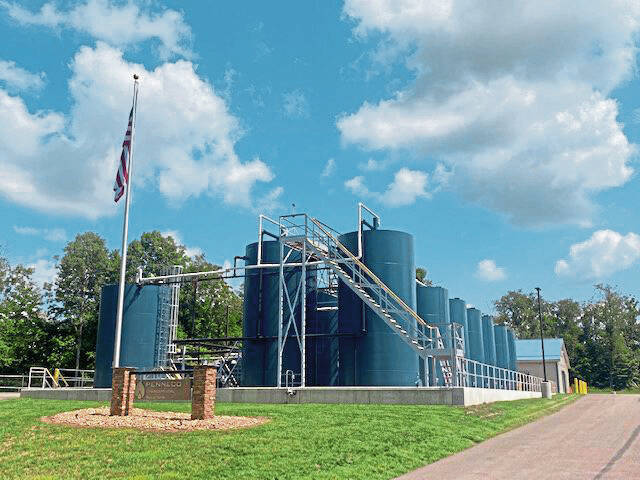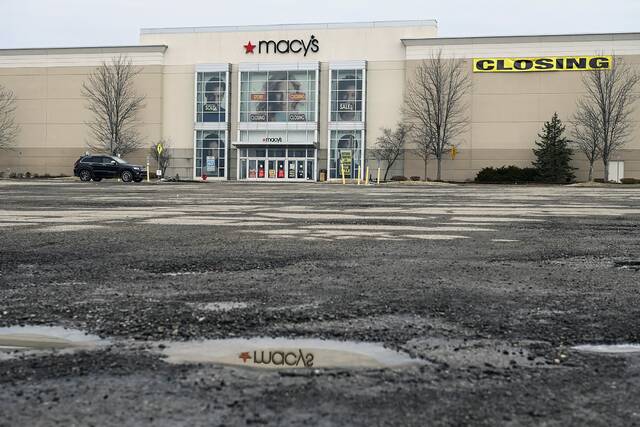The U.S. Environmental Protection Agency will hold a public hearing Tuesday in Plum on a proposed commercial disposal injection well in the borough.
The hearing is scheduled from 6 to 8 p.m. at the Plum Community Center, 499 Center New Texas Road.
Penneco Environmental Solutions of Delmont is seeking permission to convert an existing conventional shallow natural gas well at its Sedat facility, 1815 Old Leechburg Road, into a wastewater injection well, said Marc Jacobs Jr., senior vice president of Penneco.
The well, known as Sedat 4A, was drilled in the second quarter of 2004. If approved by federal and state regulators, it would be the second injection well at the site.
The existing injection well, Sedat 3A, has been in use for more than a year, Jacobs said. It previously was a conventional shallow natural gas well, completed in February 1989.
“The footprint of the facility is not going to change,” Jacobs said. “We’re just adding a little bit of redundancy to the project so we have an additional well should we have to do service on the existing well. This second well will give us a fallback so we don’t have to turn away customers.”
Penneco accepts any fluids generated in the course of exploration, stimulation or production of oil and gas wells, Jacobs said. Rather than treating the water and releasing it into waterways, injection wells are the preferred disposal method, returning the water back to the geologic formations where it naturally exists.
The water comes primarily from natural gas wells in the area operated by Penneco and others, Jacobs said. Penneco has more than 1,000 conventional oil and gas wells in Southwestern Pennsylvania; its only other injection facility is in West Virginia.
While fracking water from Marcellus shale wells also is taken, Jacobs said those operators are reusing as much water as possible before bringing it to Penneco for disposal. Recently, the only wastewater being received is coming from conventional wells, but Jacobs said that could change at any time.
A number of citizen and environmental groups oppose the proposal. Plum also is opposed, putting itself at odds with its own zoning hearing board.
Protect PT, previously Protect Penn-Trafford, says the wells are a threat to drinking water supplies. It is calling on the EPA to deny the permit for the new well and revoke the permit for the existing well, said Gillian Graber, the group’s executive director who helped found it in 2014.
Graber said the wells are problematic because they were not engineered as injection wells, making them susceptible to failure resulting in a release of material into creeks, streams and eventually the Allegheny River.
Jacobs said the injection wells are built to ensure that the older components are not affected by injection operations, and that federal and state regulators monitor them closely.
Plum’s zoning hearing board in January approved Penneco’s proposal for the new injection well, which is considered an expansion of a prior nonconforming use in a rural residential district. The borough appealed the board’s decision to Allegheny County Court and is awaiting a judge’s ruling on overturning it.
Plum had opposed the first well but gave up its six-year fight against it in June 2020.
The borough argues that adding another injection well would encroach on the property’s required 500-foot setback. It says the board also did not consider Penneco’s duty to show the proposed expansion would not harm the health, safety and welfare of the neighborhood.
“Several residents gave testimony regarding the adverse impacts of the injection well on their property,” the appeal states. “A nurse gave further testimony regarding the adverse health impacts of injection wells.”
Borough Manager Michael Thomas declined to comment, citing the pending litigation.
Jacobs said the well would have no impact on drinking water. The Allegheny River, Puckety Creek and water wells in the area are 1,470 to 1,700 feet higher than the formation fluids are injected into, he said. The fluids would be injected into a formation about 1,900 feet deep.
“Geologically, there are confining layers above and below our injection formation,” Jacobs said. “Confining layers do not allow any migration beyond the sandstone into which we’re injecting.”
Penneco sent its permit application to the EPA in May 2021.
The EPA held a virtual hearing on Penneco’s proposal in June, but Jacobs and Graber said there were problems with it, necessitating a second hearing. Jacobs said the agency did not notify the borough as required, while Graber said the hearing was required to have been held in person.
An EPA representative did not respond to a request for comment.
If the EPA issues a permit for the well, Jacobs said Penneco then would have to seek approval from the state DEP. The company also needs a waste transfer facility permit from the state.








